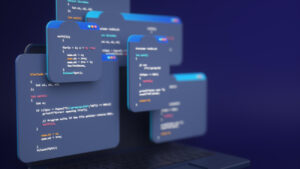In the domain of creativity, the advent of Generative Artificial Intelligence has sparked huge advancements noted by Bahaa Al Zubaidi. However, it has brought with it a complex set of legal considerations as well. This has happened particularly in the intellectual property niche.
You can understand the legal implications of generative artificial intelligence from this post. You can also learn about the issues that surround the protection of Intellectual property, patents, and copyrights.
Copyright Challenges
Generative artificial intelligence can create content autonomously. In turn, it can lead to questions about intellectual property protection and ownership. Determining ownership gets even tougher when you use generative AI to generate literature, art, or music. In these cases, it will become hard to spot authorship. Until now, many legal systems do not have clear guidelines on how to attribute copyright in these cases. So, still, the possibility of disputes and uncertainties is more.
AI Creations and Authorship
Authorship is the key point in Copyright Law. Here, generative artificial intelligence makes the line between machine and human authorship less visible. So, it becomes challenging to spot who holds the rights to content generated by AI software. Some believe that the creators of AI algorithms should get the recognition they deserve. However, some support a more nuanced approach. They consider the contributions of both human operators and AI systems.
Patents and Inventorship
Not only copyrights but generative AI’s growth has affected the patent domain as well. This has happened particularly in the innovation and drug discovery domains. AI systems are widely used in making novel inventions. Nevertheless, patent laws typically need human inventors. In turn, questions arise about whether AI-generated innovations qualify for patent protection. Also, many raise questions about who should be recognized as the investor.
Training Data and Ownership
The capability of generative AI systems greatly relies on the data used for training them. So, issues come up on the use rights and ownership of training datasets. This happens particularly when copyrighted or proprietary data is involved. Clear guidelines are important to address queries about the ownership of the trained model.
Legal Frameworks and Adaptation
The present legal frameworks were not designed considering the challenges that generative AI faces. So, legal scholars and policymakers are now contending with the requirement to adapt and develop fresh regulations. They want these regulations to strike a balance between fostering innovation and safeguarding the interests of inventors and creators. The development of a comprehensive legal framework that addresses the nuances of generative AI is important. Only then, it will be possible to ensure an equitable and fair atmosphere for all stakeholders.
The article has been written by Bahaa Al Zubaidi and has been published by the editorial board of www.techdomainnews.com





